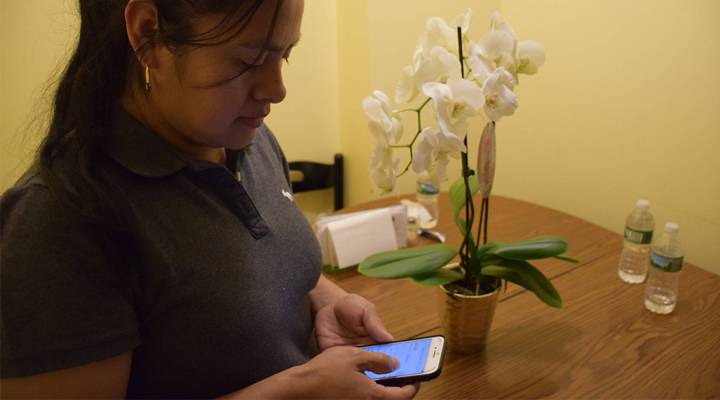
Tech is helping house cleaners get benefits
Tech is helping house cleaners get benefits

Olivia Mejia is a house cleaner in Brooklyn. Her son David is in the third grade and always wants her to go with him on school trips. For Mejia, saying yes used to mean losing income. But last year, she went with her son’s class to the Prospect Park Zoo and still got paid, thanks to a platform called Alia. The platform helps gig workers like her earn benefits, including paid time off and some types of insurance.
Some might consider domestic employees the original gig workers. There are a lot of similarities, like intermittent income and no real safety net. It’s a problem that affects millions of workers like nannies, caregivers and house cleaners, and the National Domestic Workers Alliance is working on solutions. The group’s innovation arm, NDWA Labs, is bringing financial tech to domestic workers. Its new platform called Alia directs digital payments toward benefits for house cleaners.
At her home in Sunset Park, Brooklyn, Mejia pulls up the website on her phone. She logs in, and the screen prompts her to choose the worker or client interface. She chooses worker and sees a dollar amount, the sum total of money her clients have contributed specifically for benefits. When those who use her services log in, they can select the client option, find their house cleaner’s account and choose how much to pay. The platform recommends $5 per cleaning, and the money can only be used by house cleaners to buy benefits offered through Alia.
Mejia has taken out life insurance and accident insurance. She also took two paid days off. When a worker reaches $120 on Alia, they can trade it in for a prepaid Visa card. This allows cleaners to take time off and still receive some income. The platform also offers disability insurance and critical illness insurance.
Like a lot of financial tech tools, Alia automates something that could be complicated for workers to do on their own.
“You could do this on pen and paper, but it would be completely impractical and very costly,” said Palak Shah, the founding director of NDWA Labs. “What technology is really doing is enabling all of these multiple parties, coordinating them, taking all those transactions, putting it all in one place and allowing for the worker to be able to draw down those benefits.”
The platform also gives clients a more formal way to contribute to benefits.
Many domestic workers like Mejia are comfortable with digital platforms and virtual communication, given that it’s how they already run their businesses.
“The majority of my clients I never see. I communicate with them by text,” Mejia said. “They leave me the money on the table.”
At first, Mejia was somewhat embarrassed to leave flyers inviting her clients to use Alia. But then she thought about all of the other types of workers who get benefits automatically.
“Office workers or workers in other jobs get benefits,” Mejia said. “So why don’t I have them?”
Alia currently doesn’t offer some important benefits, including health insurance and retirement plans. But as the gig economy grows, more workers will be looking for alternative ways to get the benefits they need.
Related links: more insight from Jed Kim
Uber recently settled with drivers in California and Massachusetts for $20 million. The lawsuit raised the question of whether drivers are full employees or just contractors. The agreement won’t end that debate. But it does net an average settlement share of about $2,200 per driver in those states. NBC reports that the settlement amount is pretty favorable for Uber, which is trying to shine up its image ahead of an initial public offering.
Uber has kept the number of lawsuits from drivers down by making it the default that legal disputes go through arbitration. Beware the wrath of the rideshare driver, though. More than 12,000 drivers have opted to go through arbitration. Now Uber foots the $1,500 filing fee for such cases. Gizmodo calculates that comes to about $19 million in fees for Uber. There have been several other settlements for the company, but none that would seem to break the bank. After all, Uber is expecting to be valued at $120 billion.
There’s a lot happening in the world. Through it all, Marketplace is here for you.
You rely on Marketplace to break down the world’s events and tell you how it affects you in a fact-based, approachable way. We rely on your financial support to keep making that possible.
Your donation today powers the independent journalism that you rely on. For just $5/month, you can help sustain Marketplace so we can keep reporting on the things that matter to you.


















